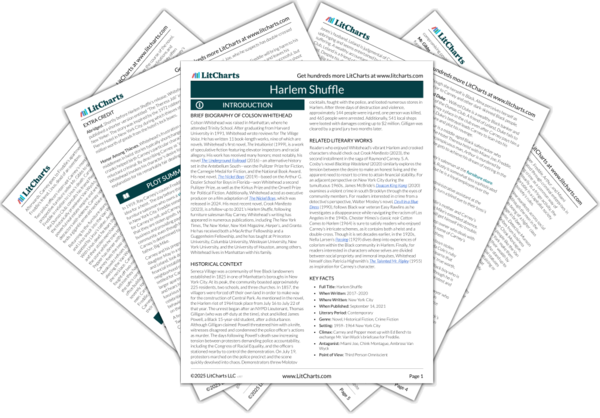Duke’s betrayal is doubly infuriating, as he not only fails to uphold his end of the bargain, but also threatens to out Carney for illegal bribery, knowing he will not face consequences. Additionally, Duke hypocritically believes himself better than Carney when, in reality, he is also a criminal, but lacking Carney’s integrity. Afterwards, Carney seems to take his anger out on the city at large, despising its sales pitches and the daily capitalist grind. This time, Carney does not delay in turning to his father’s memory for guidance, his eagerness for revenge pointing to his strong internal sense of justice.
